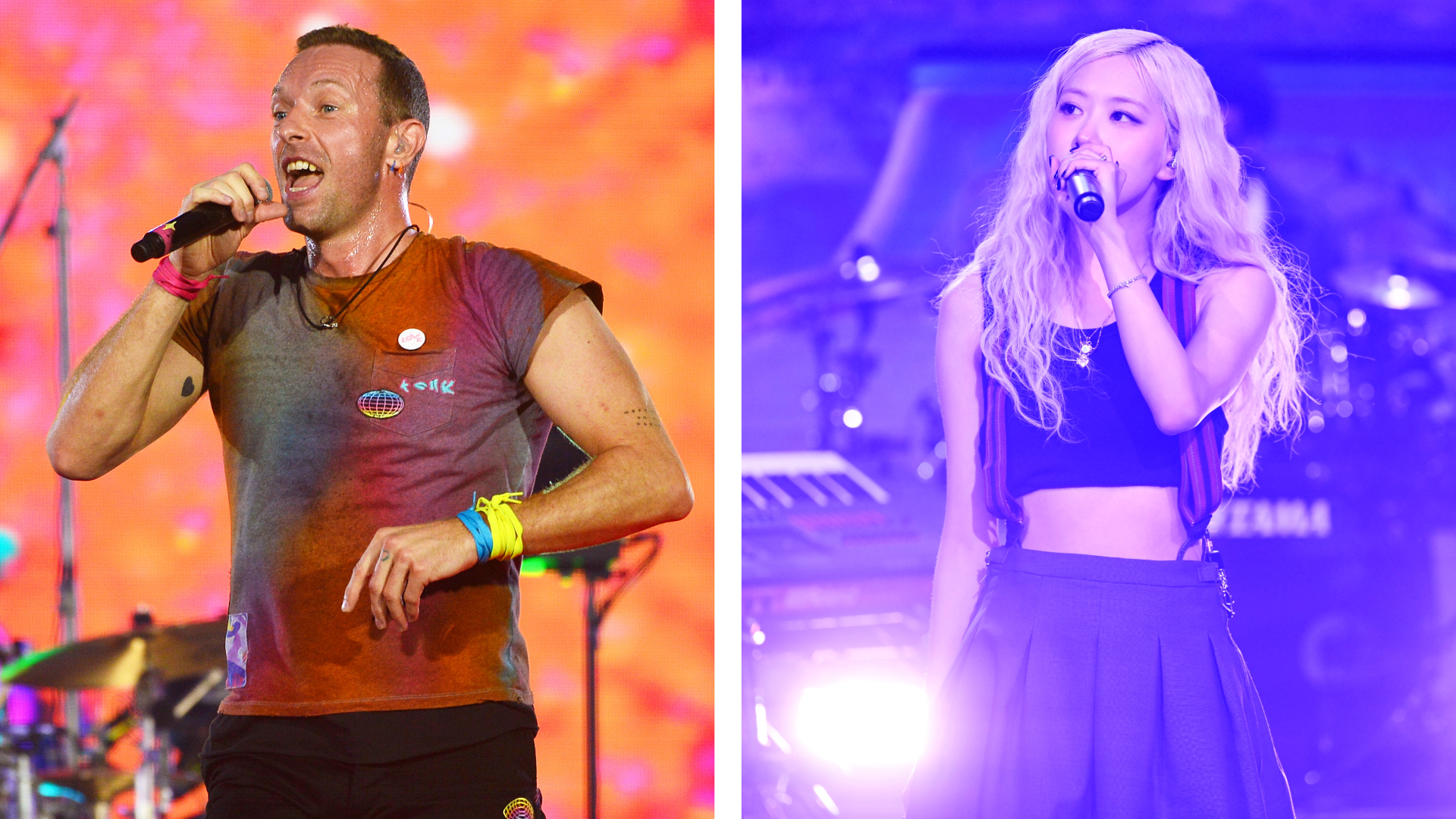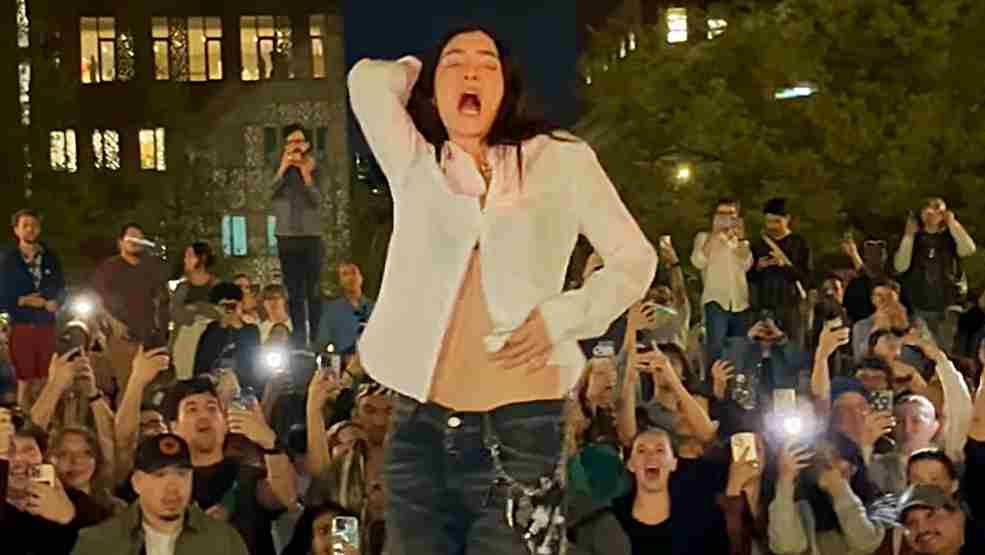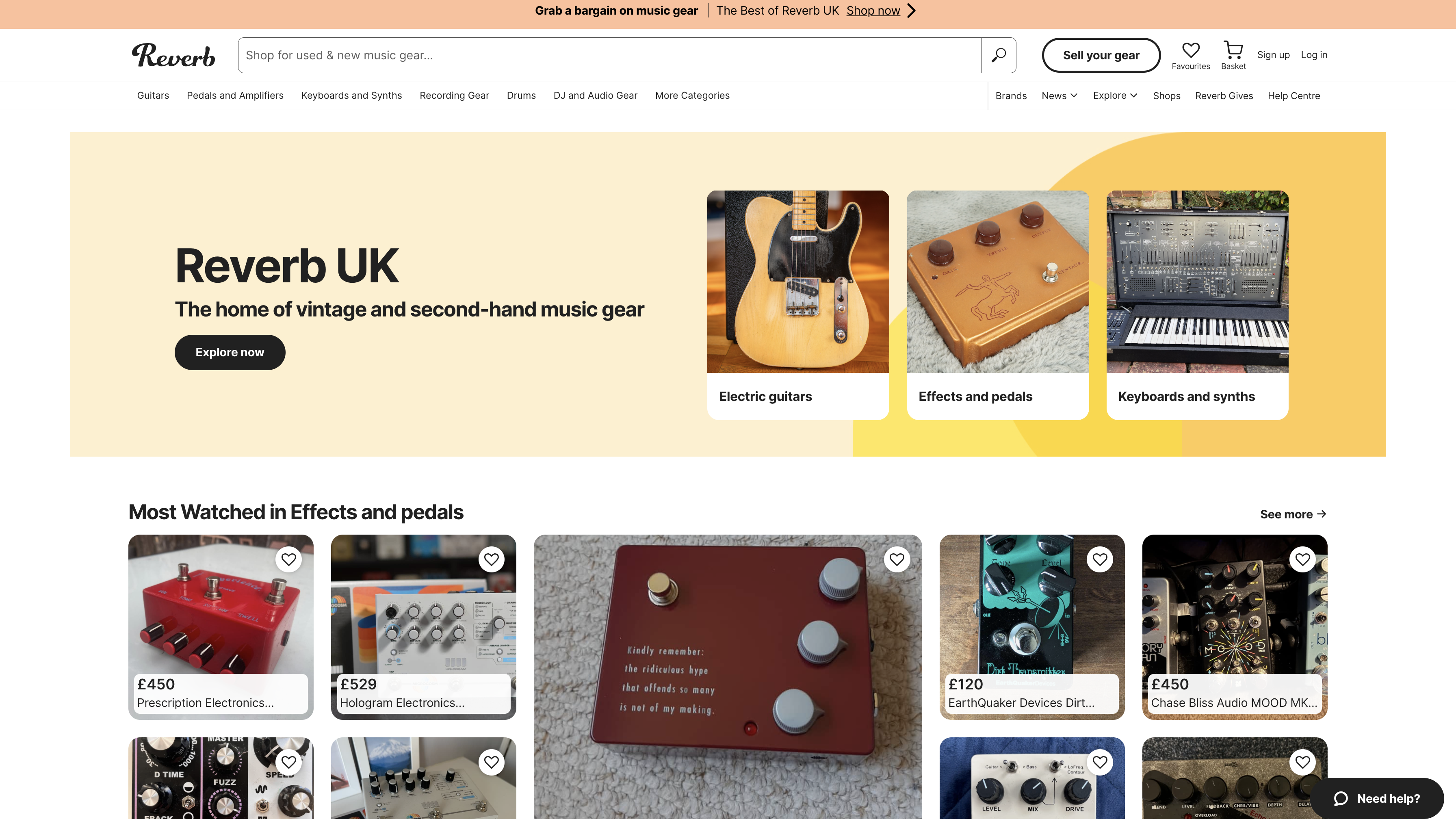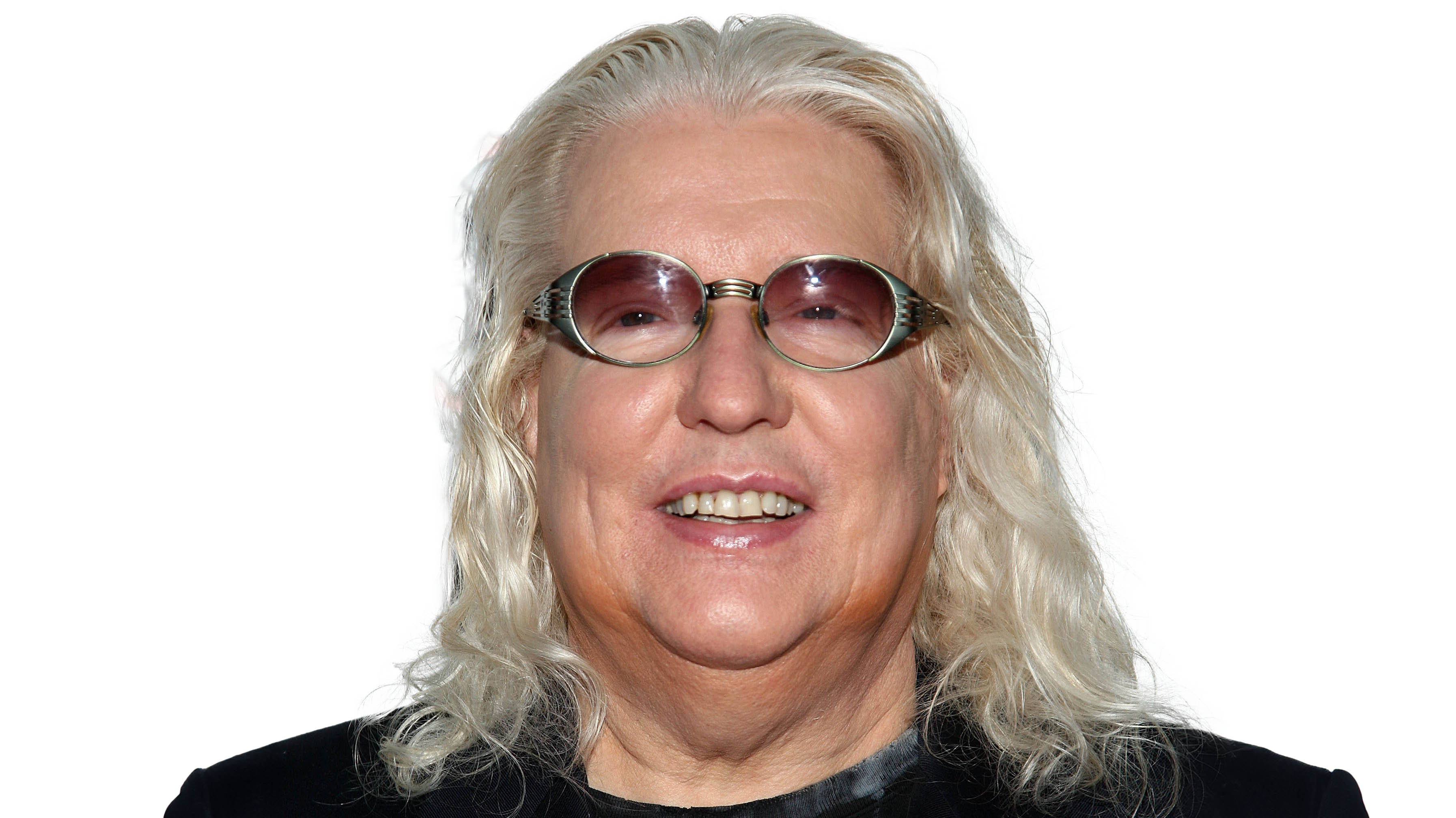Mo Kolours: "For basslines I’d use GarageBand, until I borrowed a microKORG off somebody. Man, I loved it so much - I was cranking out 20/30 beats a day"
Mo Kolours on crafting the electic melting pot of trip-hop/dub/jazz fusion that made up his 2014 debut
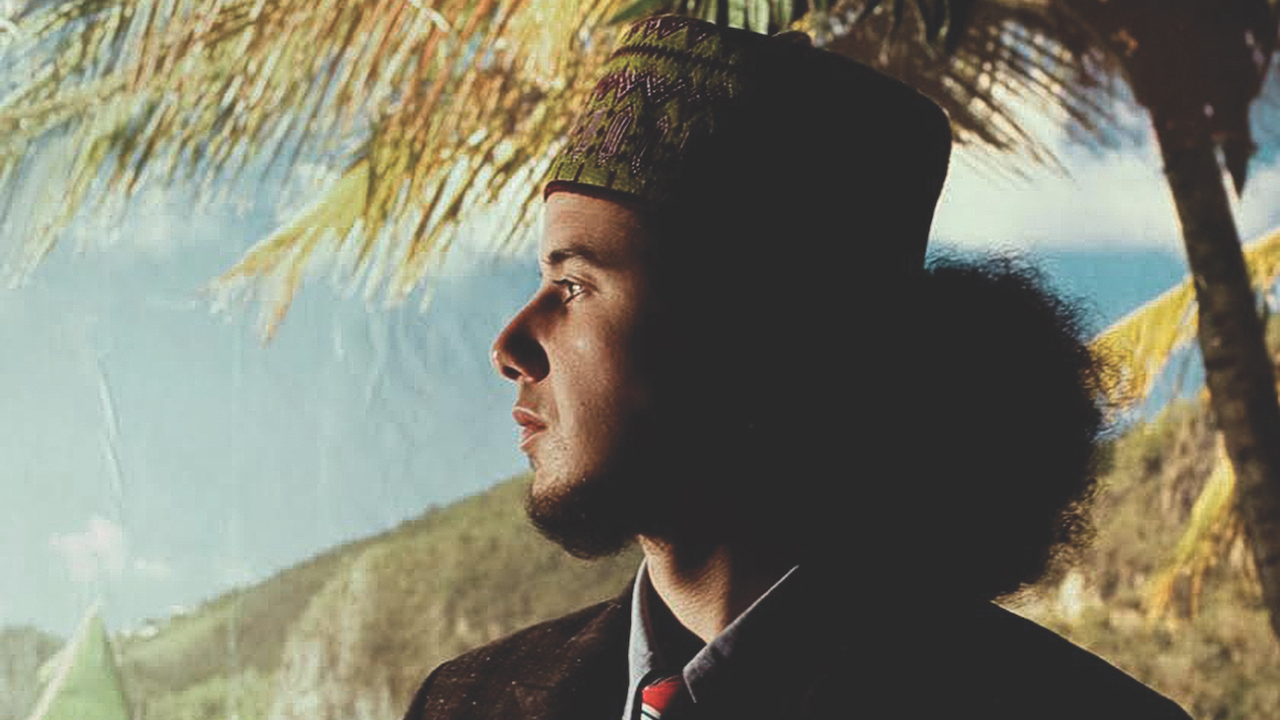
Just vibing. That’s how Mo Kolours rolled on this album. Chilling in his spot in London. Front room full of like-minded fam, chatting about tunes, pulling out dusty records. He’d chop ill beats and hum melodies, and if their heads started nodding, he’d take that one over the line. Adding his vocals and percussion, or sounds from GarageBand.
Inspired by beat-diggers and sample-flippers from across the pond like Dilla and Madlib, he’d whip up his own take on that deep vinyl crate alchemy, employing his gift for spotting a loop’s potential and innate sense of rhythm, in order to lace it with the perfect drum swagger.
It never felt like work. Writer’s block was a problem for the next man. He’d turn out tens of these jazzy, dubby, percussion-blessed boom-bap grooves a day. Stocking folders on his computer with hundreds per month, until it came time to sift through them, pick the winners, and add his vocals and extra musical flourishes for this self-titled gem of an album.
The resulting, spontaneous soundcraft that runs through it – part instinctual sample collage, part deliberate tone texturing – drew heavily from a shelf’s worth of musical influences and genres, from all corners of the globe.
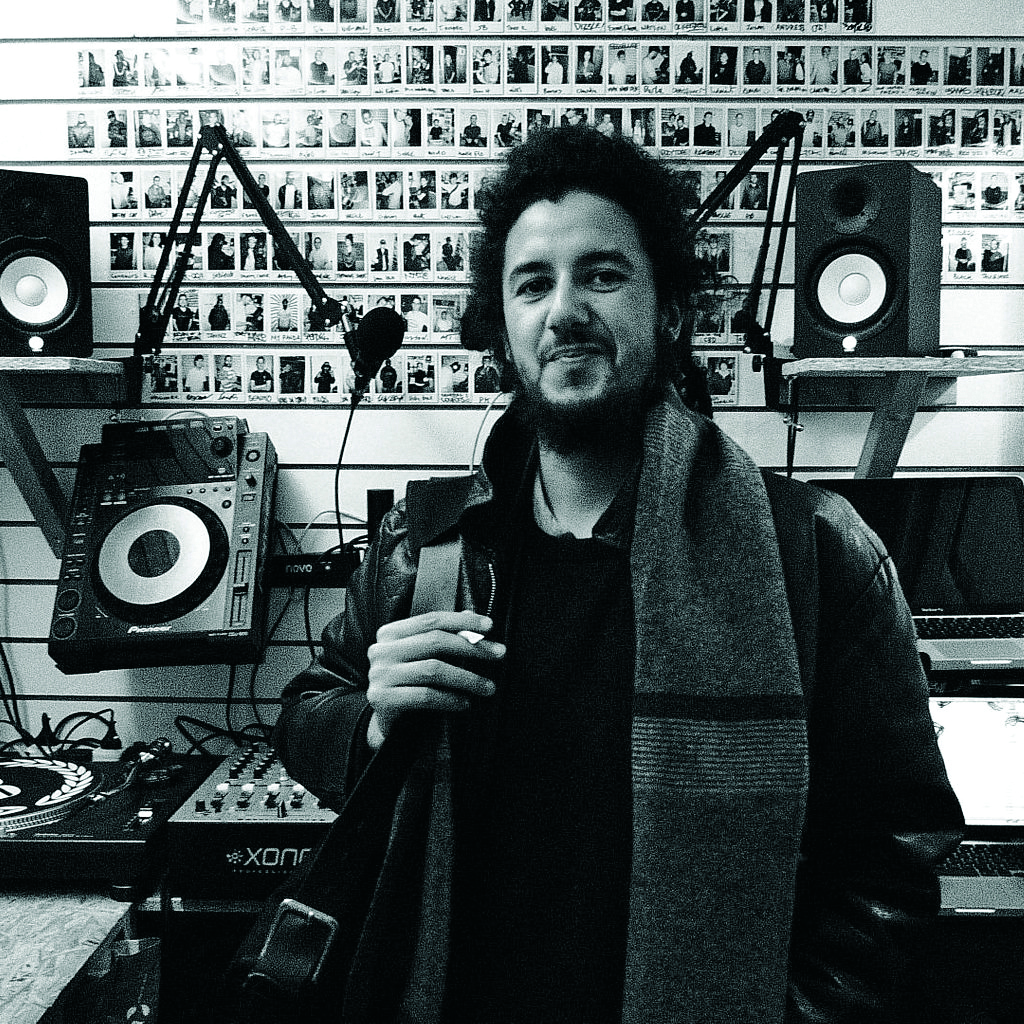
There are touches of Detroit in the mix, with house and hip-hop heads both getting a nod in his work, as well as Brazilian rhythms, afro percussion, raps, spoken word, and influences from either side of his Anglo-Mauritian heritage.
In other hands, it could have ended up an album of half-finished sketches, pulled from unfocused sessions on-the-fly. But, like an artist who paints first, thinks last, each loop retains the spark that made it so special in the moment it was first heard.
“You can work on something for too long,” says Mo Kolours. “If you put too much effort into it, if you feel like it’s something too important, if there’s too much gravity with it, it gets tiring. It gets worrying. It needs to be fun and fluid to feel right. And then that comes through in the music. It comes through in that fluidity.”
Get the MusicRadar Newsletter
Want all the hottest music and gear news, reviews, deals, features and more, direct to your inbox? Sign up here.
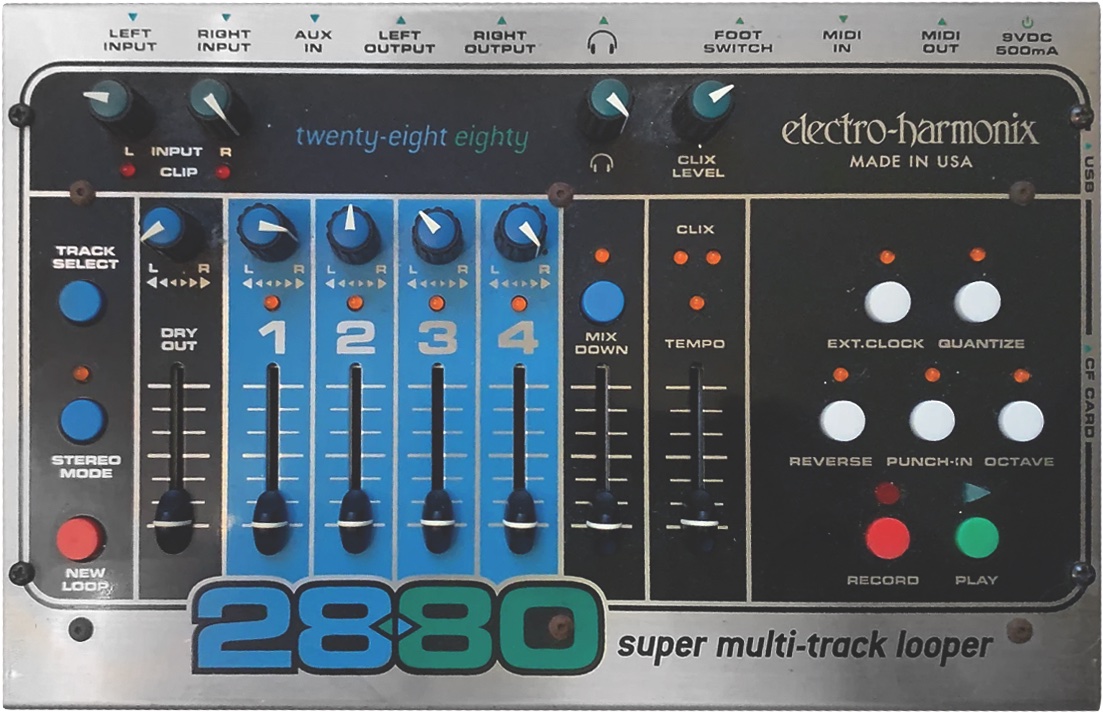
“I started using GarageBand and a computer I got given from uni. Then, inspired by [beatboxing comedian] Reggie Watts, I got the Electro Harmonix 2880 Looper.
“A beatmaker friend, Paul White, said I could use his Roland stuff, like the SP-303. And the SP-555 and SP-606 Sampling Workstation as well, I think. I’m terrible with the names and numbers. One was really chunky and had preset fat drum noises on it. Like, the kick drums were massive.
“I would record old records into this looper – You could just press record where you wanted to loop. It was like a four-track, which could become a six-track, if you mixed it down. The next step was to play a beat, taking the Roland, or getting some hi-hats.
“For a bassline I’d use GarageBand, like all the time. Until I borrowed a microKORG off somebody. Man, I loved it so much. I’d be cranking out 20/30 beats a day, and stick them all in a folder called ‘March’. And come back later to add melodies or vocals.”
Track by track with Mo Kolours
Brixton House
“I just wanted to make some dance music. My first EPs were a bit slow and trip-hoppy. I’d started doing a few gigs and wanted people to dance. I used to think dance music was boring – just ‘bom bom bom’, you know? But, then I started to listen to some good stuff – Moodyman, Theo Parrish, some Detroit. And I thought I could do some Dilla-slanted drum stuff, with that housey feel. So, I sampled something beautiful.”
Little Brown Dog
“I sampled this amazing live record. It was a dope feeling. I was having a steel drum moment. It just felt nice and the track came really quick. I remember there was some people in the room as I was making it, and they started going humming along with me on the chorus. I recorded them quick and added that. It ended up in a pile of 30-odd beats I had. And it just kept sticking out; it was a no-brainer to finish it.”
Curly Girly
“I got the idea from an old Jamaican track I used to play a lot. It just had a reggae feel to it. I kinda play this weird bassline over it to get that groove going, and picked out that vocal idea and ran with it. There was never any planning going on. Whatever I was into and playing at the time fed into the beats I was making. It was all very loose and easy. It’s different now.”
Love For You (Humbeat)
“I was humming on this one, so that’s where it gets the name from. It’s got a kind of cute feel to it. It’s also got a guitar in, that I think is from an old weird Peruvian folk record. Yeah, it just had that cute little melody. Not that at the time I was thinking about stuff being cute [laughs]. But, in hindsight…”
Mike Black
“This has the [British funk group] Cymande vocal – the lyrics are from there. I remember after making it and playing it to a few friends they were like, ‘This is the one. It’s dope. You should use it’. The bassist in Cymande is called Steve Scipio, so that inspired the name of the track. And this track has been endlessly something for me. I use the vocals a lot when I’m performing, live. I’ll improvise around them to recreate the song in new ways, each time.”
Lighter Break
I was obsessed with making beats, and just wanted to loop stuff up. I’d find all these grooves, off the grid, and add rudimentary drum noises. And just be churning them out to cassette. I wasn’t saving it – I didn’t really care
“This is one of the shorter skit-type tracks on the album. There was a lot of beats around that I was sifting through when I made this record, so wanted to showcase them, if I could. “The whole skit thing was inspired by people like [rap producer] Pete Rock on his albums. Often my favourite beats on those type of albums were just like these tiny things, and I’d just be rewinding them again and again.”
Say Word
“This one was built off a really nice sample. I think it was that same Peruvian record that I’d used on earlier tracks. The whole thing was really just a celebration of life. As well as that kind of New York, American slang – ‘Word, life’ – that people would say. We used to say that to each other a lot: ‘word!’ It was all a big celebration of life. Like, ‘word to life’,
Afro Quarters
“I was very proud of this one, if I’m allowed to say that. And it was no samples! I was just playing stuff, mostly from GarageBand – lots of world music and percussion.It was inspired by this amazing Dr. Buzzard song called Sunshower. The beat has this amazing carnival-style kick drum. I wanted to recreate that. Then I played some Rhodes emulator, just off the Mac keyboard. I was really pleased with it, as it felt like a dance track. It just felt really nice. And I lived in Peckham at the time, and we used to call it The Afro Quarters.”
Take Us (Interlude)
“Ah, this is just a loop. Like a soul/reggae thing, if I remember. ‘Take us away, they take us away’ is what it’s saying – ‘they take us away’. It comes from someone talking about the subject of slavery, and being taken away from the mainland. Obviously, that’s something that resonates with me. So, that was just a little hint at… my leanings.”
Streets Again
“I used to play in Ruby Rushton, which is Tenderlonious’ band, who started up the label, 22a. The first record they did was as a quartet with Aidan Shepherd, Yussef Dayes and Nick Walters. I met him around that time, and he played me unreleased stuff of theirs that I was obsessed with. The way that Aidan was playing bass with his left hand! Anyway, I digress. The ‘Streets Again’ sample was taken off that record before it ever came out. I sped it up like double speed, too!”
16-bit Slaves
“I had an electro sample that I slowed down with this looper I had. You could do it with a dial and it’d sound amazing. I’d use that a lot. I’d record stuff really fast, and then slow it down and play a beat over it, normally. Everything would be running at different speeds. It was really weird. Then I added what we used to call an ‘alleyway beat’ – which is any beat with that dark, grimy feel to it.
“Then it had an electronic, glitchy thing. Like an old, analogue, Atari/Gameboy feel to it. And the title of it was just saying that people were getting too attached to these computers and electronics.”
In Her Eyes (Funk Heart)
“This one comes from a girl who was coming around the time. And she was like, I don’t know man. She’s kind of tasty. She wanted to get involved in the scene in some way. She was like trying to do some singing and stuff.
“I won’t name any names, but I kind of felt like she was a bit devilish. That inspired the vocal. I think I say, ‘She’s a devil in disguise.’ That’s the opening line. ‘But, she’s got a funk in her heart.’ It was about that, really.”
Child’s Play
“This has that sound of kids playing in the street. Living in Peckham, there was always these little kids running around. And, everyone was like, scared of them. And it was just some kids running around with knives and stuff, threatening each other. But, I’ve never understood that. Why would you be scared of some teenagers? I said ‘they slash and stab each other. What kind of game is that?’ But they’re kids, children playing in street. I was like, belittling them. Like, ‘what would your mom say?’”
Natural Disasters Wish List
“It feels to me that people create their own reality, let’s say. I was on this esoteric theory of what reality is. I was playing with the idea of Biblical concepts, like swarms of locusts. And strange ideas of natural disasters, and playing around with these concepts. Sometimes my words will come from these strange, big ideas. Trying to distill them down, hinting at stuff. Without going into detail. In, general the album has got a dark side and a light side to it.”
Other Day House
“This has bits of a hip kind of ’50s jazz comedian in it. I loved that guy’s records. I took bits and looped them up. There’s some piano and stuff in the background. So amazing. All from the same record. It was heavily inspired by certain crate-digging producers. You know, that old school, early ’90s stuff. I was just like, you know, feeling them and I wanted to sample everything – spoken word, Brazilian records. Anything that I was feeling at the time would get chopped up.”
Play It Loud (In Your Car)
“When I was a kid, I kind of really liked cars. But, weirdly enough, I never learned to drive until I was in my 30s. For this one I was trying to think of as many car makes as possible – playing around with that idea of rappers talking about these glamorous cars. But, I was using a very British selection that most Americans wouldn’t even know [laughs].”
Shepherd
“This on that Biblical stuff, again. It’s that thing of the ‘sheeple’. Because, that’s how I started to think about stuff. And that’s the way that Jesus is always referenced, as being like a kind of shepherd. People like to see that as a positive thing. I saw it as kind of flocks of people, who are listening. And how governments are kinda essentially like that. Yeah. With that mindless kind of following.”
Straight Ruk
“This comes from that rugby term. And me and my brothers ‘having a ruck’ and a ‘ruckus’. Not sure they say that in that way in America? It was just about getting into a fight and a ‘ruck’. And I just felt this beat was ‘straight ruck’. It was a fighting song. A fighting beat. Me and my littlest brother, Jeen Bassa, bashed this out together in that head-nod style. A great way to close the album.”
Mo Kolours’ new album, Original Flow: Chapter One, just dropped on WRWTFWW Records out of Geneva. It fuses street soul and Hebrew-hop with Rasta and jazz spirits, with a strong positive message throughout. More a collaborative affair than previous releases, he’s enlisted a serious roster of talent to help flesh it out.
In addition to his brothers, Reginald Omas Mamode and Jeen Bassa, he writes songs with the likes of Andrew Ashong, Charles Bullen, Dwaye Kilvington, Eddie Hick, Stefan Asanovic, Myele Manzanza, Ross Hughes, and Tom Driessler.
For music, merch, and links to socials, visit Mo Kolours' Bandcamp page.




















